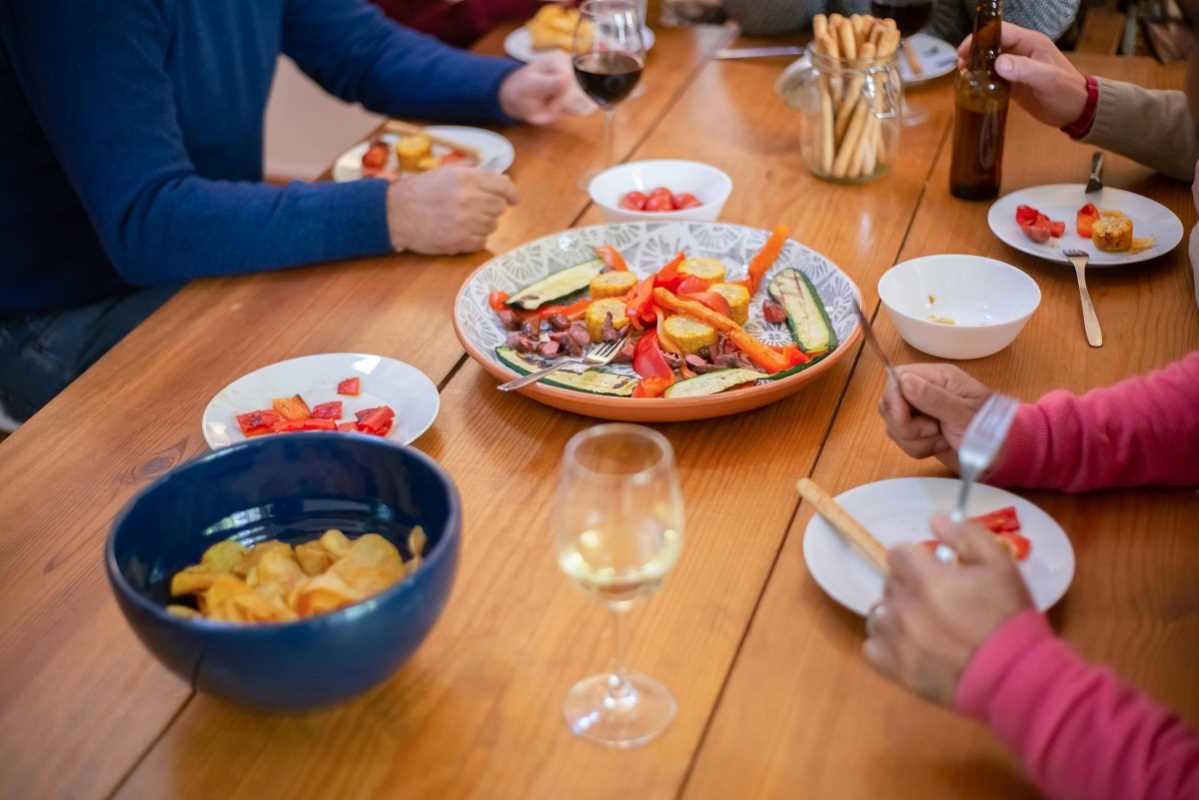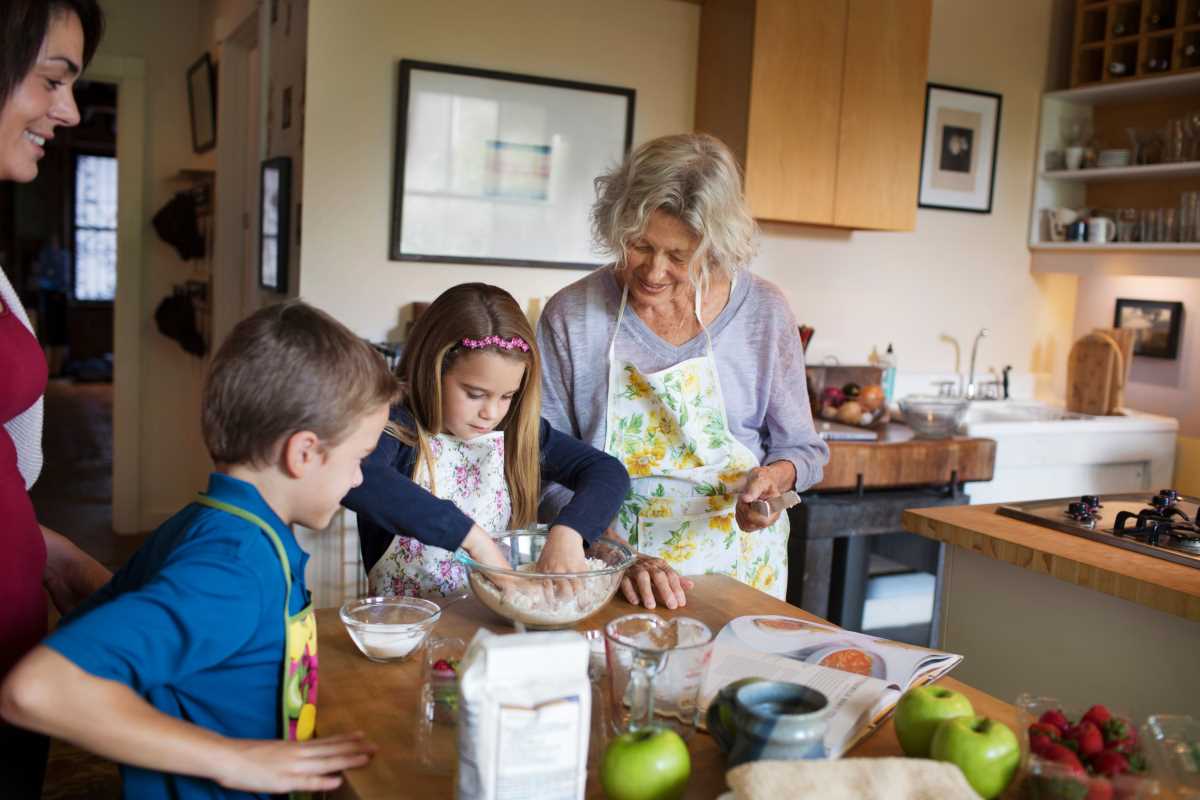While sitting at the dinner table might feel like a relic of the past, the rewards for making it a habit are invaluable. Getting your family off their devices and away from the television can improve your family's well-being tenfold. Beyond the meal itself, dinner time can become a cherished ritual filled with laughter, learning, and joy. With that said, let’s dive into the benefits of family meals and how you can turn these moments into highlights of your day!
The Benefits of Family Meals
- Improved Communication - Sitting down for a meal provides a relaxed setting for meaningful conversations. This is the perfect time for family members to share their day, express thoughts, and listen to one another without external pressures. These regular conversations help improve understanding, resolve conflicts, and foster stronger relationships.
- Bonding Time - Family meals are a reminder that, no matter how busy life gets, there’s always time to come together. Sharing a meal strengthens the sense of unity and support within the family. These moments often become treasured memories, forming the foundation for lasting relationships.
- Better Nutrition - Families who eat together often make healthier food choices. Home-cooked meals tend to be more nutritious, incorporating balanced portions of fruits, vegetables, and proteins. Children exposed to family meals are more likely to develop positive eating habits, try new foods, and understand the value of balanced nutrition.
- Emotional and Social Benefits - Sitting together at the table helps foster emotional stability, particularly for children. Research shows that regular family meals reduce stress and boost self-esteem, creating a sense of security and belonging. For parents, it’s a chance to model good manners and communication skills, which children naturally absorb.
How to Make Family Meals More Exciting
Experiment with New Recipes
Keep things fresh by introducing new recipes to your meal plan. Invite family members to suggest dishes or choose a theme for the week, such as Italian classics, Mexican favorites, or Asian-inspired cuisine. Trying new flavors and ingredients can turn an ordinary meal into an adventure.
Make Meal Preparation a Team Activity
Get everyone involved in cooking. Assign tasks based on age and skill—young kids can wash veggies or stir batter, while older ones can help chop ingredients or season dishes. Cooking together reduces the workload and offers a chance to teach practical skills. Plus, kids are more likely to eat what they’ve helped prepare.
Host Themed Dinner Nights
Transform your table into a mini escape by hosting themed dinner nights. For example:
- Taco Tuesday: Set up a taco bar with all the fixings.
- Pajama Breakfast Night: Serve pancakes, waffles, and eggs for dinner.
- Movie Night Dinner: Prepare finger foods and dishes inspired by a family-favorite film.
These themes add a playful twist to your routine and keep everyone excited about dinner.
Create a Tech-Free Zone
Designate the dinner table as a tech-free zone. Phones, tablets, and TVs should be put aside so everyone can focus on the meal and each other. Use this time to connect without distractions, emphasizing the value of being present in the moment.
Celebrate Achievements
Celebrate big and small victories during family meals. Whether it’s a good grade, a promotion, or learning a new skill, use dinner as an opportunity to acknowledge these milestones. A special dessert or a favorite dish can make the celebration even sweeter.
Fun Activities for the Dinner Table
To make family meals even more enjoyable, incorporate activities that spark creativity, laughter, and conversation.
Conversation Starter Cards
Create or purchase conversation starter cards with questions like:
- “What was the best part of your day?”
- “If you could visit any place in the world, where would you go?”
- “What’s one thing you’re grateful for today?”
Pass the cards around and let everyone take turns answering. This activity encourages deeper discussions and helps everyone get to know each other better.
Card Games
Simple card games can be a fun way to extend dinner time while keeping everyone engaged. Try games like:
- Uno: Perfect for kids and adults alike.
- Go Fish: A classic that’s easy to play.
- Crazy Eights: Quick, exciting, and interactive.
These games bring laughter to the table and create lasting memories.
Trivia Challenges
Turn dinner into a mini game night with trivia questions. Choose topics that interest your family, like movies, sports, or history, and award small prizes for correct answers. Trivia challenges encourage learning and playful competition.
Collaborative Storytelling
Start a story with one sentence and let each family member add the next part. For example, one person might begin with, “Once upon a time, a curious cat found a mysterious box…” This creative activity sparks imagination and leads to hilarious, unpredictable tales.
Gratitude Jar
Place a jar on the table and encourage everyone to write down something they’re grateful for before or after dinner. Over time, the jar fills with positive reflections that can be read together on special occasions, reinforcing a culture of appreciation within the family.
DIY Menu Planning
Use dinner time to plan future meals together. Let each family member suggest their favorite dishes or vote on new recipes to try. This activity ensures everyone feels included and looks forward to the meals ahead.
Drawing or Doodling
Set out paper and crayons for some lighthearted artistic fun. Younger kids can draw pictures of their favorite foods, while older ones can create place cards or doodle while chatting. Artistic activities encourage creativity and add a relaxed vibe to the meal.
Mini Talent Show
Give family members a chance to share a talent or skill after dinner. It could be singing, juggling, telling jokes, or even showing off a new dance move. This activity celebrates individuality and guarantees plenty of laughter.
Tips for Consistently Enjoyable Meals
- Schedule Dinner Time: Set a regular time for family meals to make them a consistent part of your routine.
- Encourage Participation: Let everyone take turns choosing meals, themes, or activities.
- Keep It Lighthearted: Don’t stress about perfection—focus on enjoying each other’s company.
- Adapt to Your Family’s Needs: Adjust meals and activities based on your family’s preferences and ages.
Family meals are an opportunity to slow down, reconnect, and build traditions that last a lifetime. Whether you’re laughing over a shared joke, collaborating on a story, or trying a new recipe together, these moments create a sense of belonging and joy that strengthens your family’s sense of togetherness.
By incorporating engaging activities like card games, trivia, or storytelling, dinner time becomes a source of fun and connection. So, gather around the table, put away the screens, and create meaningful memories that your family will treasure for years to come.
 (Image via
(Image via





